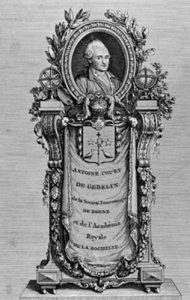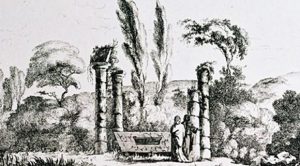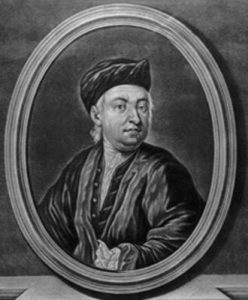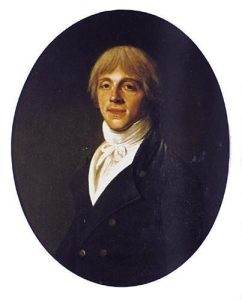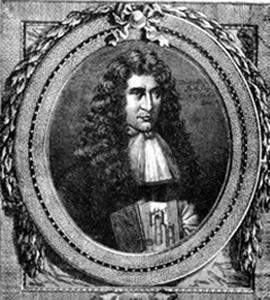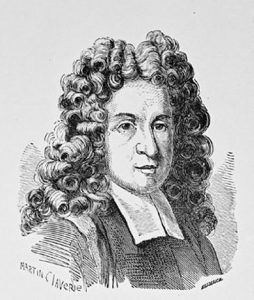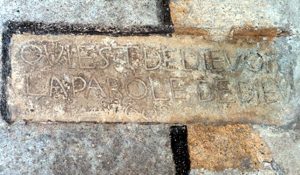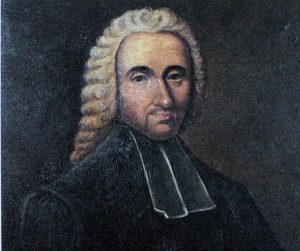Serving the Church
Court de Gébelin was the son of Antoine Court (1690-1760). The name de Gébelin came from his paternal grand-mother.
People argue about his date of birth – some think that he was born in Nîmes because of his father’s correspondence, but according to others he was born in Geneva in February 1724, where he was registered under the name of Antoine Corteiz to protect him from possible problems in the future.
In view of becoming a pastor, he went to the Lausanne Seminary and defended his thesis in theology : De prophetis in 1754.
Until 1763, he taught philosophy, ethics and controversy.
He and his father kept in contact with the reformed Churches in France : he came over from time to time and there was also a great deal of correspondence between the two countries.
In 1763 he settled in Paris and decided to devote his time to literature rather than theology. However, he continued to serve the reformed Churches, who elected him as a deputy or “correspondent” between the French Churches and the other major protestant countries.
He died in Paris in 1784.
Court de Gébelin was a scholar of literature and science
When his father died in 1760, Court de Gébelin, now settled in Paris, started studying the history of religions and ancient languages ; at the same time, he continued to intercede abroad on behalf of the protestants who were undergoing persecution in France.
He founded an independent association (of which he was appointed president), dedicated to the study of science, literature and the arts, called “the Museum of Paris”.
Soon after 1776, he joined the Freemasons and was member of the lodge called “Nine sisters”.
De Gébelin wrote a great many literary works ; he was both a committed and a learned writer.
Mention can be made of the following :
- Les Toulousaines ou lettres historiques et apologétiques en faveur de la religion réformée et de divers protestants condamnés dans ces derniers temps par le parlement de Toulouse, 1763. This was a dissertation about matters relating to Calas and Sirven ;
- Le Monde primitif analysé et comparé avec le monde moderne, 11 volumes, Paris, 1773-1782. Due to this masterpiece de Gébelin was made a « royal censor » by the government, in spite of his religion ;
- Devoirs du prince et du citoyen, this was published long after his death, in Paris, in 1789.

